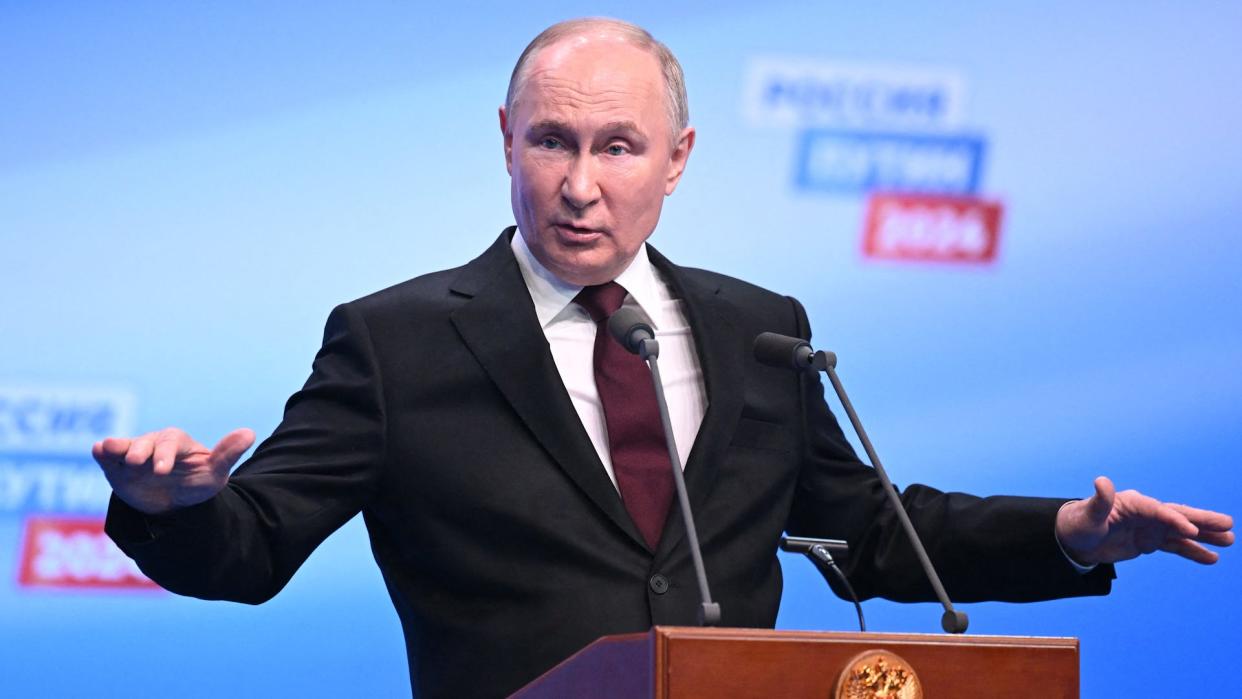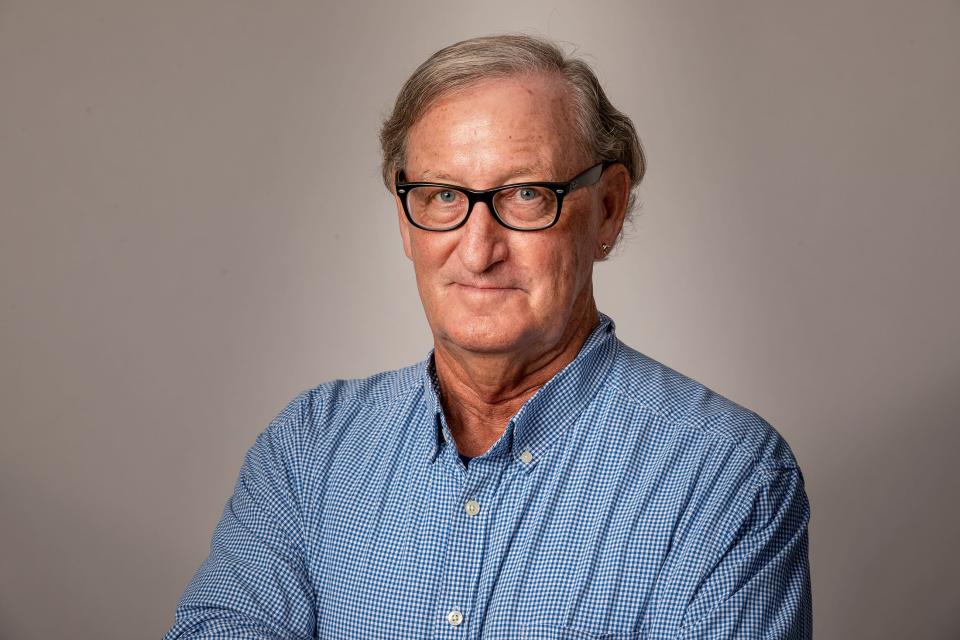Containing Russian aggression should be a priority, not mired in petty politics | Anderson

- Oops!Something went wrong.Please try again later.
After three tense, suspense-filled days, the Russian election is over. Incumbent candidate Vladimir Putin somehow squeaked past his three hand-picked and supine “opponents” with a mere 87% of the popular vote.
No questions about the outcome have been raised… by anyone inside Russia. The rest of the world sees it as the ludicrous farce it surely is.
The modern history of Russia is a history of ruthless repression, led by brutal tyrants. There, I’ve said it. The history of Russia is a history of pain. Of exploitation. Of internal despotism and an external policy of intimidation and subjugation.
Tsarist autocracy, communist collectivism or the current brand of Putin’s modern kleptocracy, under whatever veneer of legitimacy it’s masked, the result is the same. Cruelty takes center stage. Reformers get the gulag. Or worse.
There have been moments of opportunity, though – when Alexander Kerensky and his democracy movement pushed the tsar into abdication in 1917; when the horrendous regime of Joseph Stalin ended with his death and his horrendous crimes were admitted and revealed; when the USSR imploded in 1989. Each time, a tiny window of opportunity opened and was as quickly slammed shut by the progenitors of the next totalitarian nightmare.
Putin is not an anomaly; not unique at all. He has been brilliant in his reading of the west. But in the end he’s only the latest in a long, tired line of faithless gangsters who have run the place for the past century or so.
And with each new convulsion, a new, and often bloody, territorial expansion. In his victory speech of a few days ago, Putin called for a “buffer zone” between the territories already claimed by Russia and Western Ukraine. Granting space to the Russians has historically been dangerous. “Buffer zones” claimed and then grabbed by the USSR in the period following World War II resulted in a half-century of enslavement for Poland, Bulgaria, Czechoslovakia, Eastern Germany and the Baltic States – and the attempted conquest of Austria and Greece.
Appeasement of this thirst for territory has most recently resulted in the illegal but unopposed annexation of the Crimea from Ukraine in 2014. The rule of “give them an inch and they’ll take the mile” certainly applied. The wholesale invasion of Ukraine followed.
The current makeup of NATO nearly surrounds the Russian Federation: from Finland in the north to Turkey in the South, western Europe is effectively sealed off by NATO allies from any entry; but should Ukraine fall, there are no more “buffers” to be had – and it would be in defiance of history to assume that Putin would be willing to stop at the border.
For months now, the U.S. Congress has waffled over aid to Ukraine– battles over border restrictions demanded by Republicans to accompany that aid were finally resolved in the Senate, only to be derailed in the House, along with critically needed aid to Israel and Taiwan.
Can We Get It Together? Where governing and campaigning collide | Bruce Anderson
Despite a general non-partisan agreement that such aid is needed, the issue has become entangled in domestic policies having little to do with the desperate need to hold the line in Ukraine – to say nothing of two close allies, also in areas of extreme foreign policy fragility.
The choice may be this simple: supply the Ukrainians the needed military backing now, allow them to defend themselves and to act as a bulwark between the Russians and the democracies of Europe, or be forced to take a much more direct hand in the near future.
Ensuring Ukraine’s ability to defend itself buttresses the security of our allies, and de facto, our own security.
What is needed now is a stand-alone bill for Ukrainian military aid, divorced from considerations of presidential or other partisan politics, to shore up their frantic efforts to stop the Russian advance.

The Russian election is over, ours is still to come. In the interim, we need to dedicate congressional energy to more important things than banning TikTok.
R. Bruce Anderson is the Dr. Sarah D. and L. Kirk McKay, Jr. Endowed Chair in American History, Government, and Civics and Miller Distinguished Professor of Political Science at Florida Southern College. He is also a columnist for The Ledger and political consultant and on-air commentator for WLKF Radio in Lakeland.
This article originally appeared on The Ledger: Containing Russian aggression should be a national priority | Anderson

